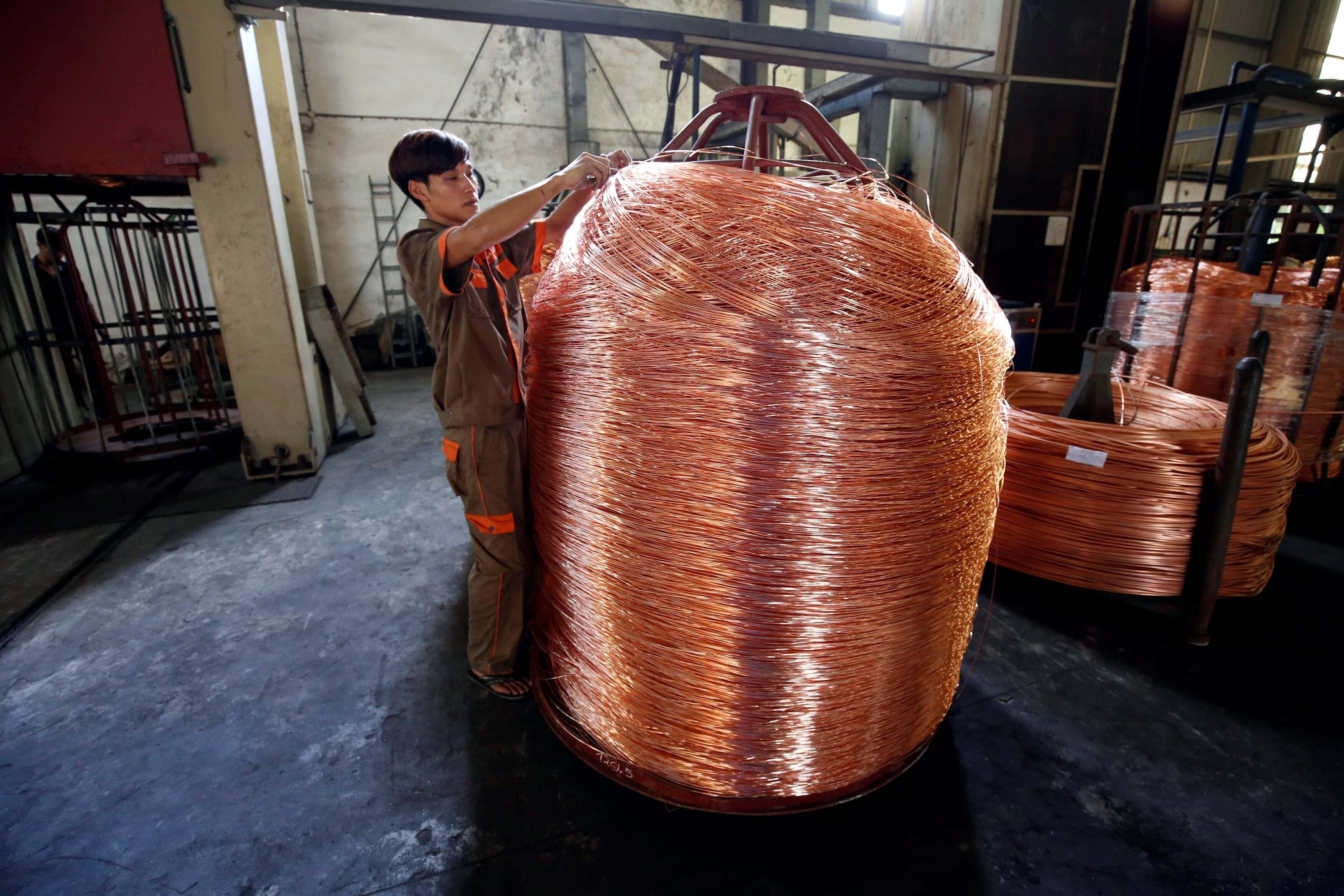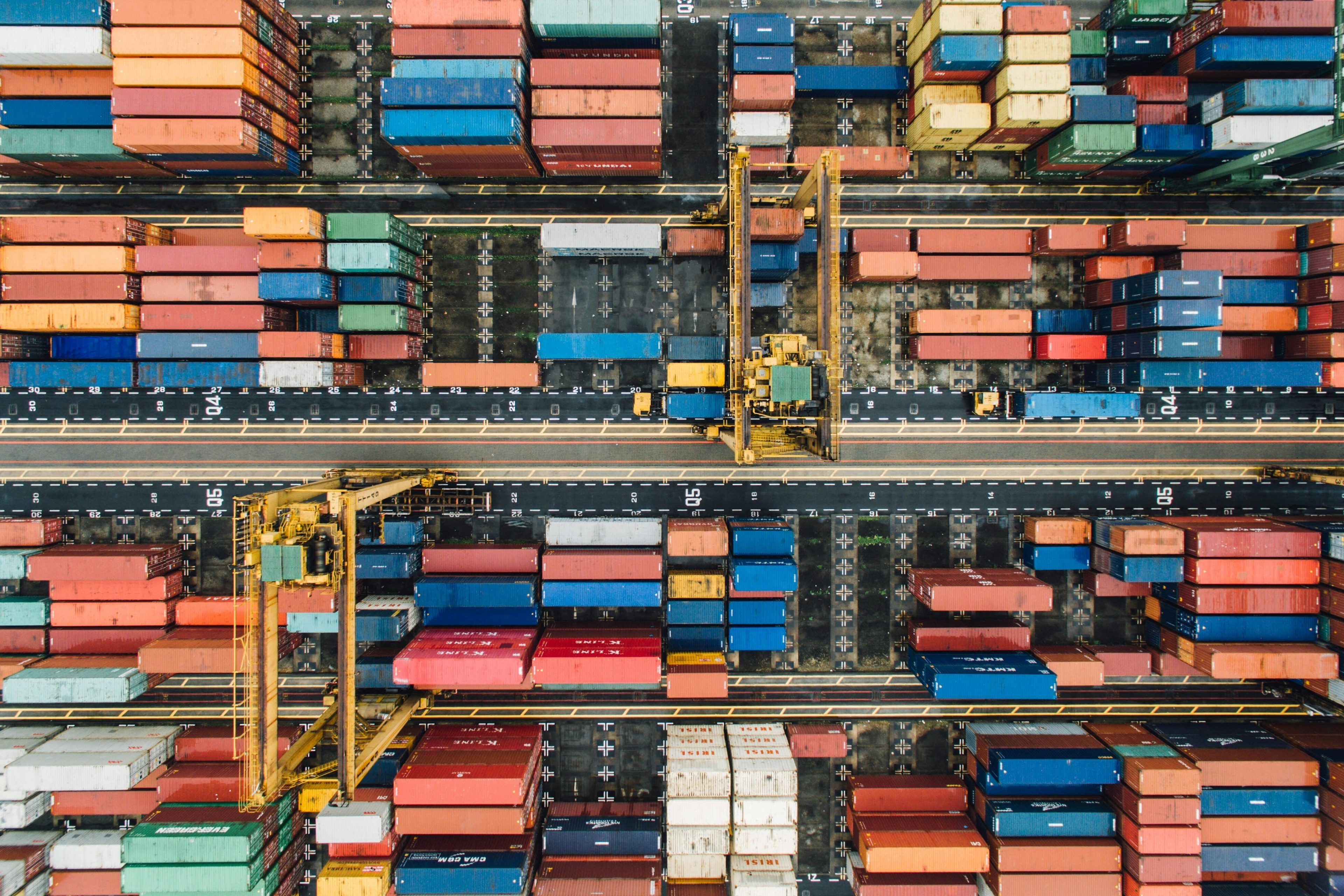What you need to know about international trade this month

This monthly roundup brings you a selection of the latest news and updates on global trade.
Image: REUTERS/Viacheslav Musiienko/File Photo
Philippe Isler
Director, Global Alliance for Trade Facilitation; Executive Committee Member, World Economic ForumStay up to date:
Trade and Investment
Listen to the article
- This monthly roundup brings you a selection of the latest news and updates on global trade.
- Top international trade stories: WTO says global trade grew more than expected despite the war in Ukraine; US-China trade reached a record high in 2022, but still lower than pre-trade war; UK government announces new post-Brexit trade rules for Northern Ireland; Countries impose new sanctions on Russia.
1. One year on: The impact of Russia's war in Ukraine on global trade
Russia's war in Ukraine has caused untold human suffering, with the UN estimating 8,000 civilian deaths, although the true figure is likely to be higher, and 18 million people in need of humanitarian aid. The impact of the war has been felt by people far beyond the country's borders, due in part to its effects on trade in – and the prices of – foodstuffs and energy commodities.
One year since the war began, the World Trade Organization (WTO) has published a report assessing the conflict's impact on trade and development. It says that while prices rose significantly for the goods most affected by the war, the increases were less than expected when the fighting began. And there was a similar story with overall world trade growth, which appears to have turned out better than initial forecasts of 2.4-3.0%, according to early estimates.

"Simulations run by WTO economists in a scenario of cascading export restrictions on food forecast wheat prices increasing by up to 85% in some low-income regions. However, the actual increase was 17%," the report says.
Exports of cereal – which are central to the food security of many African economies – declined by 14.9% last year. But the WTO says that relatively restrained export restrictions helped to keep price increases in check, and allowed countries such as Ethiopia to switch wheat purchasing patterns towards other producers. Argentina, for example, supplied 21% of Ethiopia's imported wheat last year, up from zero in 2021.
Ukraine has also had to shift its exporting routes. With Black Sea ports blocked or dependent on highly volatile grain deals, a significant amount of trade is now being transported on land through Poland and Romania. The shifts have caused disruptions such as long border queues and delays, but efforts are underway to improve the systems. The Global Alliance for Trade Facilitation, for instance, is working to digitalise the phytosanitary processes associated with exporting to provide added flexibility.
"The benefits of reglobalization are not only about income gains but also about resilience and security for the supply of goods," the WTO's report adds, noting that its latest long-term simulations highlight the importance of strengthening the multilateral trading system.
2. Mixed signals on US-China trade
The value of trade between the US and China reached a record high of just over $690 billion last year, despite the countries being in a trade war since 2018. "While some of the increase in trade between the two countries is a result of the rising cost of living, the figures also point to how reliant the US and China still are on each other," the BBC says.
However, Reuters points out that US imports from China are still far below pre-trade war levels, according to analysis by think tank the Peterson Institute for International Economics. "China is now the source of only 18% of total US goods imports, down from 22% at the onset of the trade war," the Peterson Institute says. "In comparison, current US imports from the rest of the world are 38% higher than pre-trade war levels."

The US is also exploring "narrowly focused trade pacts on critical minerals with Japan and the UK" in an attempt to reduce its reliance on China – and to limit China's wider influence on electric vehicle and other advanced technologies, Bloomberg reports. US officials say that Washington wants to create a “critical minerals buyers' club” with the likes of the EU and G7, the news agency adds.
At the same time, trade between China and Germany rose to a record level last year, making the Asian country Germany's most important trading partner for the seventh year in a row, despite political warnings in Berlin about excessive dependence.
3. News in brief: International trade stories from around the world
British Prime Minister Rishi Sunak struck a deal with the European Union (EU) on post-Brexit trade rules for Northern Ireland on 27 February, saying it would pave the way for a new chapter in London's relationship with the bloc. The deal seeks to resolve the tensions caused by the Northern Ireland protocol, a complex agreement which set the trading rules for the British-ruled region that London agreed before it left the EU but now says are unworkable.
Countries have announced new sanctions on Russia on the anniversary of its invasion of Ukraine. The US will impose a 200% tariff on aluminium and derivatives produced in Russia from 10 March, the White House has said, as it announced a raft of new sanctions. Britain has placed export bans on every item Russia has used on the battlefield and import bans of iron and steel goods, while the EU approved its 10th package of sanctions.
Growth in Japan's merchandise exports slowed sharply in January amid weakening Chinese demand for cars and chip-making machinery, stoking concern about a global slowdown and creating the country's largest trade deficit on record. Trade figures issued on 16 February followed weaker-than-expected gross domestic product data.
Shipping group Maersk has warned of slowing demand for transport and logistics as a global recession looms and cut its forecast for container demand this year, even as it beat third-quarter earnings expectations. "It is clear that freight rates have peaked and started to normalize during the quarter, driven by both decreasing demand and easing of supply chain congestion," Chief Executive Soeren Skou said in a statement.
How is the World Economic Forum ensuring sustainable global markets?
Two and a half years after Chinese trade restrictions hit Australian products from coal to wine, a diplomatic thaw between Beijing and Canberra has raised hopes for a revival of exports and spurred businesses to take steps to rebuild ties.
German Chancellor Olaf Scholz said on 25 February that he and India's Prime Minister Narendra Modi were committed to sealing a free trade deal between India and the EU. "It's an important topic and I'll get personally involved," Scholz said after his meeting with Modi in New Delhi.
Turkey's foreign trade deficit widened 38.4% year-on-year to $14.24 billion in January, official data showed on 27 February, with imports surging 20.7% and exports up 10.3%. The Turkish Statistical Institute said imports climbed to $33.61 billion in January, while exports rose to $19.37 billion.
Thailand's rice exports for January were at 805,519 tonnes, up 75.2% from a year earlier, helped by year-end orders, higher demand from the Middle East and a weak baht currency, according to the Commerce Ministry.
4. More on trade from Agenda
Trade in horticultural goods such as flowers provide a source of livelihood for many farmers in the Global South. But complex international supply chains are limiting the development of the horticulture trade and its ability to reach its full potential, says World Economic Forum Community Engagement Specialist Mariam Soumaré.
Trade and investment emerged as overarching themes at Davos 2023. It was predicted that, in the coming months, factors including geopolitical shocks, globalization, climate action and technology would have a major impact on trade and investment. Catch up here.
Don't miss any update on this topic
Create a free account and access your personalized content collection with our latest publications and analyses.
License and Republishing
World Economic Forum articles may be republished in accordance with the Creative Commons Attribution-NonCommercial-NoDerivatives 4.0 International Public License, and in accordance with our Terms of Use.
The views expressed in this article are those of the author alone and not the World Economic Forum.
Forum Stories newsletter
Bringing you weekly curated insights and analysis on the global issues that matter.
More on Trade and InvestmentSee all
Charlotte Edmond
July 30, 2025
John Letzing
July 24, 2025
Anthony Cano Moncada
July 23, 2025
Lisa Satolli
July 17, 2025
Yusuf Maitama Tuggar
July 10, 2025





